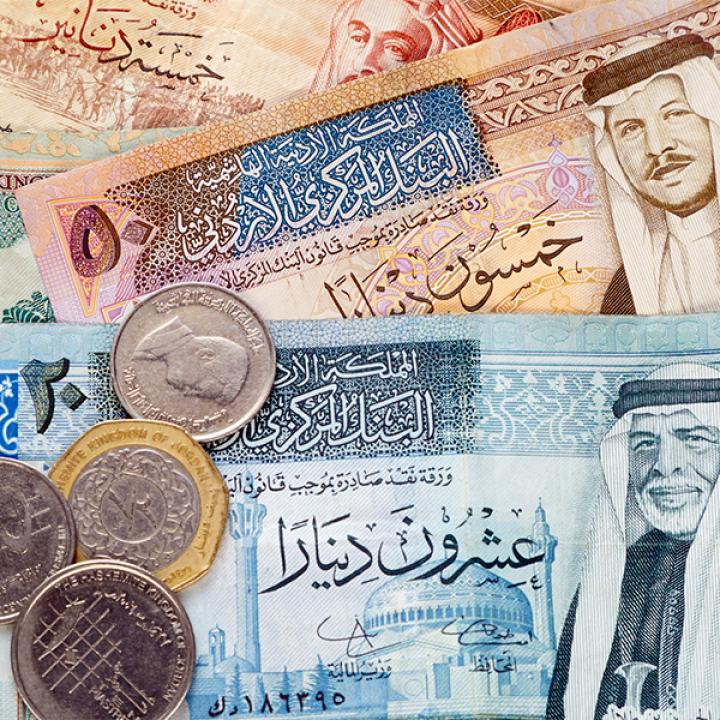

Under increasing pressure from regional wars and more than a million refugees, Amman is ratcheting up taxes on ordinary citizens to bridge the budget gap.
Tax season is tough for most Americans. Not typically so for Jordanians. In the Kingdom of Jordan -- arguably Washington's best Arab ally in the war against the terrorist Islamic State organization -- historically only about 3 percent of the locals pay taxes.
But this year is different. Facing a burgeoning budget deficit, months ago in an effort to raise revenues the Government levied a 16 percent Value Added Tax or "VAT" on the population. Irrespective of income, citizens of the Kingdom now have to pay tariffs on a broad range of goods and services.
For a plurality of the kingdom's families currently under the poverty line of 500 dinars -- or $705 -- a month, this regressive tax is having a serious impact. Although the VAT doesn't cover medicines and many food staples like rice, sugar, wheat, bread, chicken, fish, and meat, the new tax is proving a bitter pill to swallow because the costs of gas, oil, diesel fuel, kerosene, and electricity have all increased. Annual vehicle registration fees are up, too. On some cars, fees have spiked from $120 to $268 per year. Adding insult to injury, the price of Jordan's favorite desert, knafeh -- a sweet confection of sugar, cheese, pistachio nuts, and rose water -- has swelled from $6.50 to $9 per kilo.
Other vices have also been targeted. For the nearly 45 percent (conservative estimate) of Jordanian men who smoke, the cost of cigarettes has increased about 10 percent. The price of alcohol has also surged. A single domestic tall boy purchased from a store now costs $5.
Worse, it was initially misreported that mansaf -- Jordan's national dish of lamb, rice, and yoghurt -- would also be taxed, in particular by raising the price of the fermented yoghurt known as "jamid." The allegation was so controversial it sparked a debate in parliament. To quell the rumor mongering, on February 21, the Government published an advertisement on the front page of a leading daily newspaper, describing in detail what products would be affected.
While the unprecedented media campaign may have better informed Jordanians, it clearly didn't make them any happier. Complaining is a national pastime in the kingdom, but the ongoing griping about the price hikes this time is unusually relentless. Not surprisingly, young Jordanians are especially incensed about tax increases on mobile phone service. Tariffs included, $7 worth of cellphone talk time can now cost up to $12 to purchase. And to prevent enterprising youths from employing free web-based chat and texting alternatives such as WhatsApp and Viber, the Government has proposed charging users of these apps $5.50 per month.
Outraged, in early February, one Jordanian tried to organize a boycott campaign of the telecommunications companies. He was arrested, and released after a week. Still, product boycotts and demonstrations demanding that King Abdullah fire the Prime Minister are becoming a routine occurrence, far surpassing even the ubiquitous anti-Israel protests.
Despite the popular pushback, however, taxes in Jordan look like they are here to stay. The wars in neighboring Iraq and Syria -- and hosting nearly 1.4 million Syrian refugees -- have proved very costly for Jordan. To balance the budget and meet its International Monetary Fund (IMF) economic reform commitments, the kingdom needs to curtail subsidies and raise nearly $2 billion in revenues. Further price hikes on electricity are expected in the coming months as one way to raise the missing revenue.
Meanwhile, for average Jordanians already living under economic duress, the VAT is just another source of pressure. While Jordan remains reasonably stable, the stresses appear to be taking a toll. For example, private school enrollment -- a traditional emolument for middle-class children in the kingdom -- is reportedly falling, suggesting dwindling disposable income. At the same time, between 2007 and 2015, the divorce rate more than tripled to 6.9 percent, likely, at least in part, due to financial pressures. Suicides are up as well. And all of this is occurring even though Washington gave Jordan $1.7 billion dollars in economic and military assistance last year. No wonder that the mood in the kingdom is pretty dour these days.
While tax day in the United States is no picnic, at least it's only one day -- and this year it's now over. Lately for Jordanians, every day is tax day, so it's never over. Now accustomed to this annual institution, generations of Americans subscribe to Mark Twain's witticism, "The only difference between a tax man and a taxidermist is that the taxidermist leaves the skin." It's only been a couple of months, but Jordanians, it can be assumed, agree.
David Schenker is the Aufzien Fellow and director of the Program on Arab Politics at The Washington Institute.
American Interest



